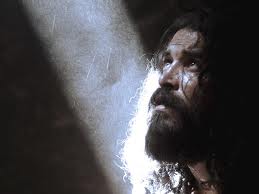This is a great mystery: but I speak concerning Christ and the church.
Did we miss this? I love a good mystery. Don’t you? Especially at the moment you finally get it – the moment you figure out where the story has been headed all along.
Paul writes a letter to the church (at Ephesus). It is a letter to you and a letter to me, IF we claim Christ as our Lord… IF we are consumed with the promised return of our Lord. But there’s a mystery here you might overlook if you see Ephesians only as a letter with rules and regulations. It is the mystery of relationship.
Ephesians 5
Walk in Love
Therefore be imitators of God, as beloved children. 2 And walk in love, as Christ loved us and gave himself up for us, a fragrant offering and sacrifice to God.
Walk in love. We get that, right?
Walk. Make progress in our faith. Don’t just stay as we were, but become as Christ would want us.
We are beloved children of the Living God. WOW! We love that. But now, as children we are expected to grow up as a member of the family of God our father. Yet as the rebellious child will often do, we get hung-up on Dad’s rules. (See vs. 5-21)
Then, it seems (like in all good mysteries) that the author is headed down a different road with just the obvious connection to that ‘sexual immorality’ thing: porneia. We know that marriage should solve all of that. But why is Paul giving marriage so much ink?
Wives and Husbands
22 Wives, submit to your own husbands, as to the Lord. 23 For the husband is the head of the wife even as Christ is the head of the church, his body, and is himself its Savior. 24 Now as the church submits to Christ, so also wives should submit in everything to their husbands.
25 Husbands, love your wives, as Christ loved the church and gave himself up for her, 26 that he might sanctify her, having cleansed her by the washing of water with the word,
27 so that he might present the church to himself in splendor, without spot or wrinkle or any such thing, that she might be holy and without blemish.
28 In the same way husbands should love their wives as their own bodies. He who loves his wife loves himself.
29 For no one ever hated his own flesh, but nourishes and cherishes it, just as Christ does the church, 30 because we are members of his body.
Lets pause for a moment and look at this from a different perspective. Many a sermon has been preached using Ephesians 5:22 as a reason for husbands to have their wives “submit” to their will. I will point out here that MANY a husband is NOT submitted to Jesus Christ as his Lord. For the text says, “as to the Lord.” Therefore, BOTH the husband and the wife who claim Jesus Christ as their Lord MUST be submitted to Christ as Lord.
Is your Christian marriage submitted to Christ as your Lord?
Husbands, love your wives. (Don’t get mixed up on this now.) Love here is not sexual love. (That’s OK and expected, but Paul refers to something bigger here.)
Love, that is: agapaō, is inclusive of the same love expected from all Christians for each other on a most intimate basis.
Paul adds: as Christ loved the church. (Same word for loved: agapaō). This means that in a sense if you think of Jesus as the Husband and you as the Bride, it’s the love that Jesus has for you IF He were your Husband. It’s the same love that God has for all of us in the sense that ‘adam’ means not only man, but mankind.
But Paul does not stop there with his example for husbands. He adds: and gave himself up for her.
What does he mean by, gave himself up?
Husbands, he means a sacrificial love for your wife. Do you do that? (For you were glad enough to have your wife sacrifice her humility to serve you. Do you sacrifice your being for her?)
Paul emphasized the sacrifice of the husband even more (in a way that we cannot get around), for he adds to that a purpose: that he might sanctify her, having cleansed her by the washing of water with the word.
Sanctify her: a husbands duty. A religious term meaning to to separate her from profane things and dedicate a wife to God. My responsibility as her husband. (And I pray in the Lord that she will submit to it.)
The prodigal wife has returned from the pig sty. She is filthy. She has had an unloving master who has not cared that she has wasted all of her blessing and inheritance from her father on foolish things. She begs to return home, even as a servant with not even the rights of one of the family of the father.
How will you welcome this filthy prodigal wife?
(Need direction in this? Read Luke 15.)
Sanctify her, having cleansed her by the washing of water with the word.
Picture the purification of the Bible, a waterfall showering the one sanctified to God until all the filth of the pig sty of the worldly places is gone.
The water of purification is the word of the Lord.
Will your wife listen? That is what the Lord wants to know. Will you and she both become sanctified in the Word?
John 1 In the beginning was the Word, and the Word was with God, and the Word was God. 2 He was in the beginning with God. 3 All things were made through him, and without him was not any thing made that was made. 4 In him was life, and the life was the light of men.
It all goes back to the beginning, to Eden, to God’s intention of the intimacy of the relationships involved of adam.
31 “Therefore a man shall leave his father and mother and hold fast to his wife, and the two shall become one flesh.”
Paul now refers to the mystery of marriage. The climax, however, is more than you ever expected. (Paul adds that the mystery is profound.)
32 This mystery is profound, and I am saying that it refers to Christ and the church.
JESUS + HIS CHURCH = a Marriage made in Heaven.
As a member of Christ’s body, the church; Christians are Jesus’ Bride.
Every prepared and purified soul of the church awaits the coming again of our Bridegroom: Christ Jesus, our Lord and Husband betrothed to each of us.
It is a very great mystery, Jesus Christ + the Church; Husband + wife. We are by His sacrifice one with Him and will be with Him in His heavenly home for all time.
Paul adds, as our example of that marriage:
33 However, let each one of you love his wife as himself, and let the wife see that she respects her husband.
Why is the witness of Christian marriage so important?
We are the respect of Christ in this world, until He returns for His faithful Bride.
Christians must live as Christ and be witness to His love and righteousness.
Would you (IF you were Jesus) want an unfaithful wife?
The hypocrisy of failed christian marriages is no mystery to the world.
WE, by the witness of our divorces are prodigal wives gone off to the pig sty on our own.
It is because of the hardness of our hearts and not love for Christ Jesus, our Betrothed Bridegroom.
Will we return to the vows of our faithfulness?
OR will the Lord return before we purify our church once more?
They are no longer two, but one.
Is your marriage one with Christ Jesus our returning Bridegroom?
For He poured out His sacrifice of love for His Bride on the Cross.
May we in our Christian marriages once more take up our cross and follow the Bridegroom.



 Two debtors: one, a repentant prostitute; the other, an unrepentant believer (expecting a refund).
Two debtors: one, a repentant prostitute; the other, an unrepentant believer (expecting a refund).
 Let’s put it into the
Let’s put it into the 
